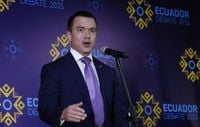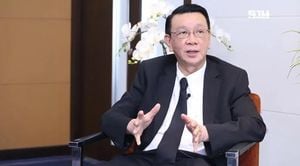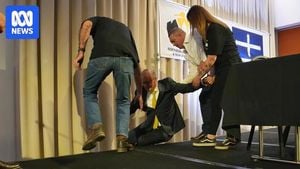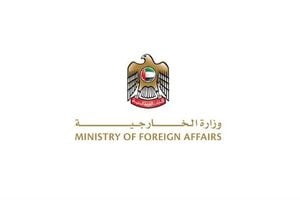In a dramatic turn of events, Andrew Tate and his brother Tristan, notorious figures known for their controversial views and legal troubles, have returned to the United States after being granted permission to leave Romania. The brothers, who had been under house arrest for over two years on charges related to human trafficking and organized crime, arrived in Fort Lauderdale, Florida, on Thursday. Their departure marks a significant moment for the siblings, who have often been vocal supporters of former President Donald Trump.
On February 12, 2025, Andrew Tate took to the social media platform X, proclaiming, "The Tates are free, Trump is president. The old calls have been answered. And they will be answered from now on. Believe." His brother Tristan echoed similar sentiments, expressing confidence that Trump would restore America to its former glory. In a post from November, Tristan had asserted that Trump should recognize the brothers' role in fortifying the youth against what he termed the "virus of woke thought."
The Tates' release has raised eyebrows, particularly regarding the involvement of American officials in their case. Reports indicate that U.S. officials had been in discussions with their Romanian counterparts about the brothers' situation. Romanian Foreign Minister Luminita Odobescu clarified that the Romanian judiciary operates independently and that no external pressure influenced the decision to allow the Tates to leave. When asked about potential U.S. involvement, Trump himself stated he was unaware of any such pressure being applied.
Meanwhile, the Romanian authorities are grappling with a separate but equally concerning issue involving Kallin Georgiesku, a far-right politician whose recent electoral campaign was marred by allegations of anti-Semitism and other criminal activities. Authorities have detained Georgiesku and around 20 associates following the discovery of a significant cache of weapons and cash during police raids on properties linked to them. The raids were part of an ongoing investigation into Georgiesku's alleged ties to organized crime and extremist groups.
Georgiesku, who has previously praised the fascist regime of Romania from the 1930s, remains a controversial figure. Despite ongoing investigations, he continues to lead in polls for the upcoming presidential elections scheduled for May. Critics of his campaign have voiced concerns over democratic integrity, particularly following the cancellation of elections in December due to alleged Russian interference—claims that Moscow has vehemently denied.
In a related context, President Daniel Noboa of Ecuador recently met with Trump in Florida, seeking military aid to combat drug trafficking gangs that have plagued his country. Noboa emphasized that the U.S. would assist not only in narcotics enforcement but also in addressing illegal fishing issues. The two leaders discussed various topics, including security, illegal immigration, and trade relations.
Noboa's request includes the potential restoration of foreign military bases in Ecuador, a significant shift in policy since the U.S. closed its base in Manta in 2009. The president has also formed a strategic alliance with Eric Prince, founder of the controversial private military company formerly known as Blackwater, which gained notoriety for its involvement in civilian casualties in Iraq.
As Ecuador faces escalating violence due to drug trafficking, Noboa's administration is under pressure to find effective solutions. The homicide rate in Ecuador has surged alarmingly, increasing from six per 100,000 residents in 2018 to a staggering 47 per 100,000 in 2023. Although the rate decreased slightly to 38 in 2024, the ongoing violence poses a significant challenge for the government.
Both the Tate brothers' release and Noboa's appeal for military assistance highlight the complex interplay of politics, law enforcement, and international relations. While the Tates celebrate their newfound freedom and align themselves with Trump’s political resurgence, Ecuador's leadership seeks to navigate the treacherous waters of drug-related violence and international cooperation.
The Tates' situation raises questions about the influence of political connections on legal outcomes, particularly as they emerge from a turbulent period marked by serious allegations. As they return to the public eye, their actions and statements will likely continue to stir controversy and debate.
In the backdrop, the Romanian political landscape remains fraught with tension, particularly as Georgiesku's campaign continues despite serious allegations against him. His commitment to running in the upcoming elections, coupled with the investigations into his activities, reflects a broader struggle within Romanian society regarding extremism and democratic values.
As the situation unfolds, both in Romania and Ecuador, the implications of these developments will reverberate beyond their borders, potentially influencing international relations and domestic policies in the U.S. and beyond. The coming months will be crucial as these narratives develop, and the world watches closely.





